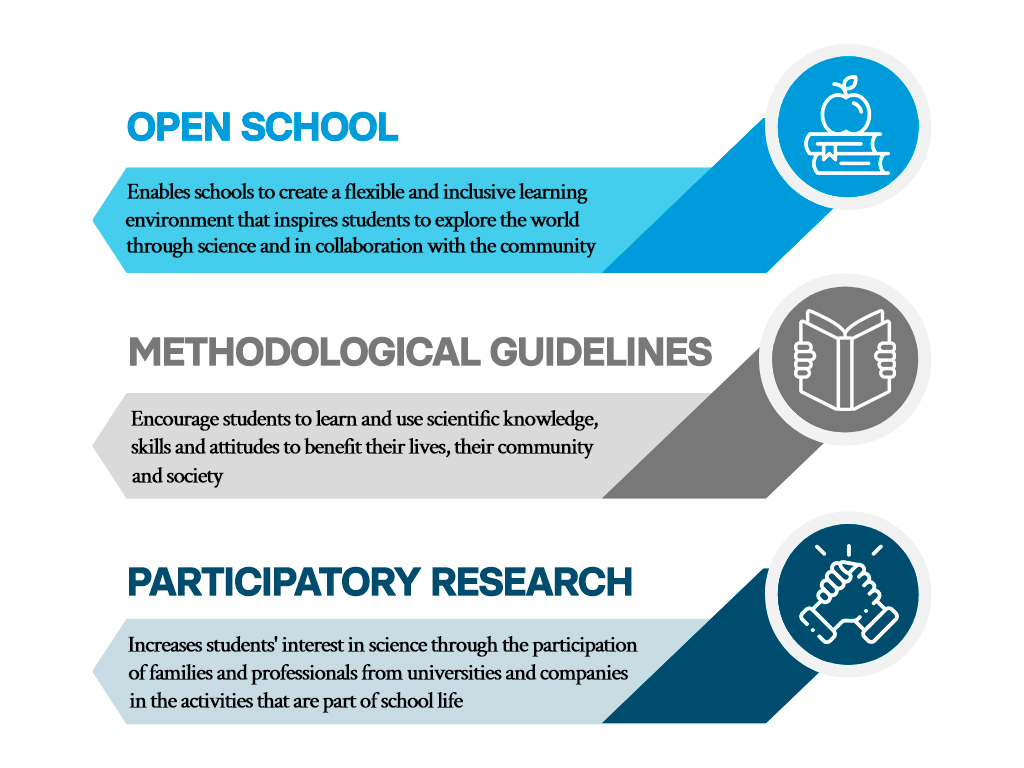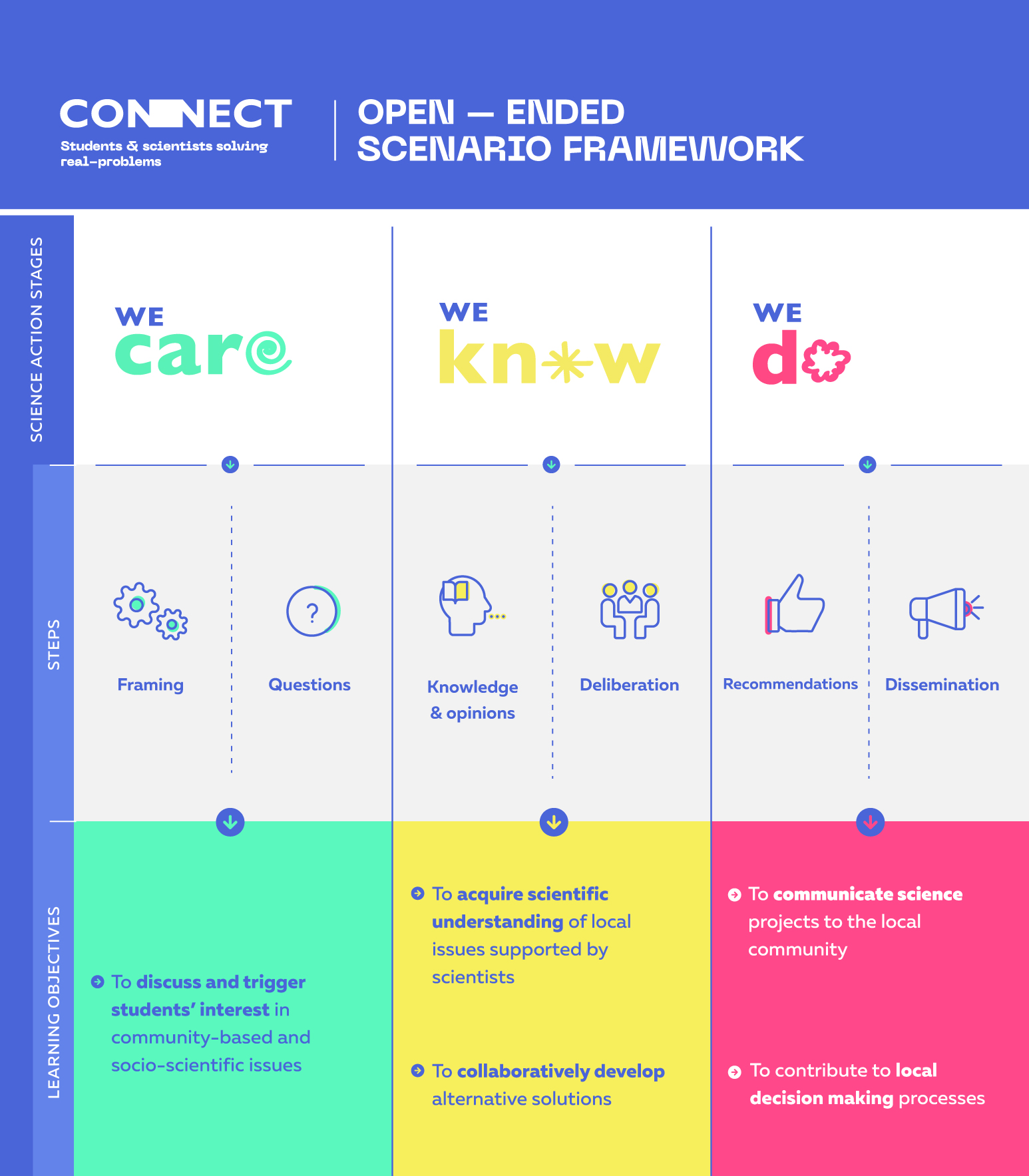CONNECT
Offering an educational model that promotes the use of science among students to solve problems in their environment.

About the Open Schooling CONNECT project
CONNECT is a project funded by the European Union's Horizon 2020 Research and Innovation program, which supports secondary and upper primary schools. The aim of CONNECT is to offer an inclusive and sustainable educational model to increase students' confidence in using science to solve problems in their environment.
The CONNECT core pillars:

Methodology and goals achieved
The work with students includes participatory research processes that bring together science professionals and families with the aim of improving the perception of the latter towards scientific careers. In this way, the aim is to put an end to the conviction of many students who perceive that "science is not for me".
According to recent research, a significant proportion of students do not have the so-called 'scientific capital', especially those belonging to disadvantaged groups. It is possible that, due to a poor family scientific culture, a lack of scientific role models or few opportunities to participate in scientific activities outside formal education, students do not see themselves as future science professionals. The solution proposed by these new studies is to add more opportunities to the curriculum so that students can become familiar with what scientists do, talk about science with their families, interact with the scientific community, and thus appreciate the impact of science in their daily lives.
Participatory research methodologies are inspired by methodological frameworks, such as Responsible Research and Innovation (RRI) and other Living Lab methodological frameworks, as well as collaborative learning and inquiry with the community: families, universities and businesses.
During the 2020-21 and 2021-22 academic years, more than 20 schools and 2,500 students and their families have participated.
Why Open Schooling?
The Open Schooling movement promotes inclusive learning in collaboration with the school environment and aims to contribute to the resolution of challenges surrounding the educational community. CONNECT promotes Open Schooling through:
-
Real world challenges
-
Reflections on the future with the support of the scientific community
-
Engaging family activities
-
Fun tasks to apply scientific ideas
-
Collaborative learning strategies
-
Competency-based assessment
Methodological guidelines
The methodological guidelines being developed by the Living Lab in collaboration with the different social actors focus on the following health challenges:
-
Design and implementation of a comprehensive intervention for the improvement of SARS-CoV-2 prevention in educational centres.
-
Design and implementation of a comprehensive intervention to improve the promotion of mental health in schools.
The guides have been designed in collaboration with different research centres in Catalonia within the framework of the Sentinel Schools network. These guides are structured based on a methodological framework developed by CONNECT that consists of three stages: "Care-Know-Do".
- Care: the main objective of this stage is to promote the students' interest in the challenge they have to face.
- Know: is the central stage that aims to accompany students in the acquisition of knowledge and the development of scientific skills in a participatory manner.
- Do: final stage in which the acquired knowledge and skills are applied to solve real problems.

A collaborative project
The consortium is coordinated by the Open University (UK), and integrates 10 organizations: Living Lab for Health at IrsiCaixa (Spain), EXUS (Greece), The Danish Board of Technology (Denmark), Mastery Science (UK), Universidad Valahia Targoviste (Rumania), LOBA (Portugal), Universidade de estado de Bahia (Brazil), Associação Paranaense de cultura (Brazil), Regional Directorate of Primary and Secondary Education of Crete (Greece).
From Catalonia, the research is carried out within the framework of the Sentinel Schools network.